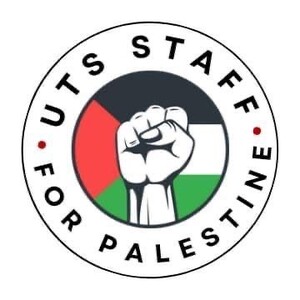100 signatures reached
To: Professor Andrew Parfitt
Act Now: UTS Response to ICJ's Verdict on Israel's Illegal Actions in Palestine

Dear Prof. Andrew Parfitt,
We are writing to you in light of the recent findings of the International Court of Justice (ICJ) regarding Israel's illegal policies and practices in the occupied Palestinian territory. The ICJ's conclusions highlight significant violations of international law by Israel, including its unlawful acquisition of territory by force and infringement on the Palestinian people's right to self-determination. These findings necessitate a robust response from the University of Technology Sydney (UTS) as an institution dedicated to social justice and the upholding of human rights.
ICJ’s findings
The ICJ has rendered legal findings regarding Israel's policies and practices in the occupied Palestinian territory, concluding that they systematically violate international law. These violations include the unlawful acquisition of territory by force and infringement upon the self-determination rights of the Palestinian people. Critically, the ICJ finds that Israeli practices in the oPt constitute the crime of apartheid in violation of states' obligations under the Convention for the Elimination of Racial Discrimination (p.64).
Legal Consequences for Organisations
The ICJ ruling explicitly underscores states’ obligations not to engage in economic relations that serve to entrench Israel's illegal activities, including, “inter alia,”
"the obligation [...] to abstain from entering into economic or trade dealings with Israel concerning the Occupied Palestinian Territory or parts thereof which may entrench its unlawful presence in the territory; [...] and to take steps to prevent trade or investment relations that assist in the maintenance of the illegal situation created by Israel in the Occupied Palestinian Territory (p.76),"
The ICJ further clarifies that these obligations extend to international organisations. This clearly proscribes trade relations with entities involved in the provision of arms and other technologies used by Israel in the furtherance of its illegal occupation.
Urgent UTS response required
The ICJ's ruling makes it abundantly clear that UTS cannot continue to engage in strategic partnerships or other economic relations with organisations that provide arms and other technologies to the Israeli government–including the weapons manufacturer Thales–under the pretense that such relations are 'legal' or that they may be undertaken at researchers' discretion under the banner of 'academic freedom.' The same is true of partnerships or other relations with Israeli academic institutions, given the central role of Israel’s university sector in advancing its illegal activities. In alignment with UTS's commitment to social justice, including the protection of human rights for Indigenous peoples worldwide, we request the following urgent actions be undertaken by the University:
1. Comprehensive review of UTS relationships with entities connected to Israel:
Conduct a thorough review of all strategic and economic relations between UTS and entities implicated in Israel’s illegal activities enumerated by the ICJ. This should include academic collaborations, partnerships and affiliations with organisations involved in the enablement of Israel’s illegal actions in the oPt or elsewhere. This review must be understood as an important first step towards ending such relationships.
2. Call for an immediate and permanent ceasefire:
Issue a public statement calling for an immediate and permanent ceasefire in the region. The ongoing violence and deepening humanitarian crises demand urgent intervention and a clear stance from educational institutions that value peace and justice.
3. Condemnation of the actions of the Israeli government:
Make a strong and unwavering condemnation of the illegal occupation, apartheid policies, and genocide currently being carried out by Israel against the Palestinian people. It is imperative for UTS to stand firmly against these violations of international law and human rights.
4. Support for Palestinian human rights:
Express UTS's unequivocal support for the Palestinian people and their human rights, as enshrined in the principles of international law to which Australia is obligated. A public declaration of solidarity with the Palestinian people would align with UTS's values and commitment to global justice.
The findings of the ICJ underscore the need for institutions like UTS to take a principled stand against systemic injustice in Palestine. By undertaking the actions outlined above, UTS can demonstrate its earnest dedication to upholding international law and championing the human rights of all peoples, including those who are most vulnerable.
Thank you for your attention to this critical issue. We look forward to your positive response and the University’s continued leadership in promoting social justice and human rights.
Yours sincerely,
UTS Staff for Palestine, University of Technology Sydney
Why is this important?
UTS staff and students are urged to sign this petition to uphold our commitment to social justice and human rights. The International Court of Justice's recent finding highlights Israel's illegal practices in the occupied Palestinian territory. As a leading institution dedicated to ethical principles, UTS must take a stand against these violations. By signing this petition, you join a collective call for the University to reassess its relationships with entities connected to Israel, condemn the illegal occupation, and support the rights of the Palestinian people. Your signature is a powerful statement of solidarity and a call for UTS to lead by example in advocating for justice and upholding of international law.

